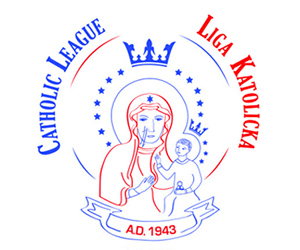
/Fr. Rafał Kaniecki/
Introduction
Gender is one of the greatest lies of the current world, affecting especially marriage and family. Under the pretext of fighting for equal rights of men and women, spreading tolerance and getting rid of discrimination, there has been an ongoing attempt at carrying out a cultural revolution, during which (against inhabitants of given states) international institutions recommend implementation of various directives containing that ideology. This article is to present main postulates of the aforementioned international documents regarding marriage and family on the example of:
- „Yogyakarta Principles on the Application of International Human Rights Law in relation to Sexual Orientation and Gender Identity” (2007), prepared by twenty-nine experts of the International Commission of Jurists and the International Service for Human Rights
- „Standards for sexuality education in Europe. A framework for policy makers, educational and health authorities and specialists” (2010), by WHO Regional Office for Europe and Federal Centre for Health Education
- „Council of Europe Convention on preventing and combating violence against women and domestic violence” (2011).
- From marriage to variety
Following a general norm of human rights which says „all human beings are born free and equal in dignity and rights, and that everyone is entitled to the enjoyment of human rights without distinction of any kind, such as race, colour, sex, language, religion, political or other opinion, national or social origin, property, birth or other status” „Yogyakarta Principles” conclude that human rights are not only violated in case of refusal, restriction or discrimination, which is what the general norm stipulates. It is enough not to accept some feature, some human affliction that is considered immoral or unacceptable in a certain cultural milieu, to speak about violation of human rights. Such affliction could be homosexual acts, gay, lesbian or bisexual identity, following transgenderism, transsexualism or intersexualism, to name but a few. It is significant that gender ideology does not only limit to reminding that persons supporting the features considered by the society immoral or unacceptable (as mentioned above) are entitled to exercise human rights due to their being humans (which is clearly understood). Gender ideology does not content itself with ensuring that persons having socially unacceptable views should be tolerated in the proper sense of this term, that is to say they should be respected despite disapproval for their beliefs. This ideology goes on to claim that the states consider all non-heterosexual behaviour as a norm, treating them practically as part of human rights, and introduce such an arbitrary ruling into their legislation despite the opinion of the majority of their citizens and even without the necessity to ask the citizen’s opinion, for example through a referendum. What is more, gender ideology even demands to punish all who protest against such law or express their disapproval for considering such behaviour as a norm because of among the others different views on religion, ethics, aesthetic sensitivity or morality.
And so, „Yogyakarta Principles…”, stipulate that „States shall…”
- carry out changes in the constitutions so that they contain „ the principles of equality and non-discrimination on the basis of sexual orientation and gender identity and ensure the effective realisation of these principles”,
- introduce trainings and educational programs that will eliminate prejudice and discrimination against LGBTQ persons (lesbians, gays, bisexuals, transgender, queer persons etc.),
- abolish legislation against sex reassignment surgery due to sexual orientation,
- provide state assistance for patients undergoing such surgery or correction process,
- grant the right to unlimited sexual contacts for all persons above the consent age regardless of sexual orientation,
- abolish of any restriction regarding expressing one’s sexual identity through clothing, speech or behaviour,
- legally forbid considering any sexual orientation or gender identity as a disease subject to treatment,
- refrain from using notions such as „public order, public morality, health and public safety” to limit the freedom of opinion and speech,
- not hinder organisation of public gatherings aimed at expressing support for non-heterosexual behaviour or identity,
- ensure that the above mentioned freedom of speech and opinion must not violate the rights and liberty of LGBT persons, while each single act of violation of these rights should result in criminal persecution – which in fact means a ban on any criticism or protest against the behaviour of LGBT persons,
- ensure that professed religion must not interfere with or impose any beliefs other than these of its believers, regardless of their sexual orientation or gender identity,
- provide training on various sexual orientation and gender identities for the police, judges, prosecutors, other judiciary clerks, lawyers, penitentiary services, the army and other uniformed services, government administration, those who exercise executive power, clerks, public service officers, national healthcare staff, teachers, pupils and students,
Furthermore, „ the mass media avoid the use of stereotypes in relation to sexual orientation and gender identity, and promote tolerance and the acceptance of diversity of human sexual orientation and gender identity, and raise awareness around these issues”.
One can clearly notice that in such a new order there is no place for a Christian marriage.
- Moral decay as a formation method
In „Standards for Sexuality Education” it says „Sexuality education begins in early childhood and is conducted further in the periods of adolescence and adulthood”.
Sexuality education is an extremely important matter for gender ideology supporters. On the basis of “The United Nations Convention on the Rights of the Child” (1989), which underlines the right of the child to information and the duty of the state to issue legal acts regarding sexuality education, as well as following the opinion of WHO Regional Office stipulating that sexuality rights are human rights and contain the right to sexuality education, „Standards for Sexuality Education” demand from the state to organise such classes as compulsory in schools or other places. At the same time the document releases parents from their natural duty to acquaint their children with the matter by claiming they would not be the best teachers due to their close family relationship, possibly resulting in embarrassment. The document goes on to say that any parental opposition against their child’s participation in such classes should not be taken into consideration, as the right of the child to information is superordinate to the right of parents to protest in this matter, despite the fact that in many states the constitutions entitle parents to bring up children according to their beliefs. Still, the document calls for violation of parents’ rights claiming that some of those who originally protested against compulsory sexuality education later were satisfied with it. Unfortunately, one will not find anything in the document about the parents who remained dissatisfied with compulsory sexuality education. It is hard to resist an impression that this is an attempt at forced sexuality indoctrination, especially when one finds out what kind of sexuality education is promoted by “ Standards…”.
There are generally three kinds of sexuality education:
- type 1, more commonly known as “Education for life in the family” is aimed at preparation of the youth for living in the family and marriage, it supports premarital sexual abstinence and does not accept contraception.
- Type 2, in which premarital abstinence is mentioned as an option, but contraception methods are presented as well.
- Type 3 – it is the same as type 2 but also presents in a broader perspective individual and sexual development based on premarital relationship and non-heterosexual intercourse, sex reassignment surgery or correction, as well as non-heteronormative behaviour (transvestite, transgender or queer patterns).
As one can easily guess, “Standards…” considers type 3 as the only correct method of sexuality education and at the same time expresses dissatisfaction because of the fact that in the USA and East Europe there are conducted almost exclusively type 1 and type 2 sexuality education classes (during communist period East Europe saw almost only type 1 classes). In West and North Europe it is type 3 that dominates. It is also worth remarking that in some countries (for example Germany and Sweden parents have no right to refuse to send their child to type 3 sexuality education classes).
Let us now look at some issues recommended by WHO Regional Office in “Standards…” as curriculum for sexuality education classes for children and the youth:
- age 0-4 years – joy and pleasure from touching a child’s own body, masturbation, awareness of various types of relationship, various models of family.
- Age 4-6 years – same sex relationships, respect for various sexuality norms. Satisfaction and pleasure coming from touching one’s body (masturbation, self-stimulation).
- Age 6-9 years – Body changes, menstruation, ejaculation. Choices regarding parenthood and pregnancy. Procreation myths. Various contraception methods. Acceptance for variety.
- Age 9-12 years – effective use of condoms and contraception. Pleasure, masturbation, orgasm. Differences between gender identity and biological sex; love towards same-sex persons. Acceptance for various opinions, views and behaviour regarding sexuality.
- Age 12-15 years – making a conscious choice about contraception methods and their effective use. Gender identity and sexual orientation, including homosexuality and “coming-out”. Pregnancy (also in a same-sex relationship). A skill to negotiate and communicate to have a safe sexual intercourse.
- Age 15 years and over – critical approach to cultural and religious norms regarding pregnancy, parenthood etc. Acceptance for various sexual orientations and identities. A change of possible negative feelings (for example disgust and hatred) towards homosexuality for acceptance of sexual differences. “Coming out” (that is to say revealing to others one’s homosexual or bisexual feelings). Structure of the family, forced marriage, homosexuality, bisexuality, asexuality, alone parenthood.
Those who read only some elements of this curriculum will clearly see that it inevitably leads to sexualization and demoralisation of children and the youth. Naturally regardless of their parents’ opinion.
Some countries, running a different kind of sexuality education than type 3, are criticised by the supporters of gender ideology for not having sexuality education at all, which is obviously not true. That was the case of Poland where mainly type 1 sexuality education has been conducted for years. It is interesting, though, to compare the results of education in both types. According to the data revealed on December 16th, 2016 in TV Trwam by Antoni Zięba PhD, the head of Polskie Stowarzyszenie Obrońców Życia Człowieka (Polish Pro-Life Association), in Sweden (with a population of about 9milion people) the number of abortions in the group of girls under 19 is around 6,000 while in Poland with a four times larger population the number of abortions in the same group totals 20*. In the UK, where the number of female students under 19 (about 1.9m) is comparable to Poland (approximately 1.4m), the number of abortions in this age group totals around 40k-45k, which is almost 2000 times higher than in Poland. The rate of HIV/AIDS incidence in Poland is two or three times lower than in the other mentioned countries. It should be noted that in Sweden the youth are given contraception and condoms for free while in the UK students receive emergency contraceptive pills on top.
The effects of both types of sexuality education require no further comments.
* So called “abortion underground” is estimated in Poland at 7,000 – 14,000, therefore the real number of abortions (including those not registered) carried out in Poland by girls under 19 should amount to a few hundred, which is still a much better result than in the aforementioned countries.
- Family redefined
Gender ideology tries to replace the model of the family known for years, based on one man and one woman, with the model which is limited neither by the gender of spouses nor their number in a given marital relationship. In “Yogyakarta principles …” one can read that “Everyone has the right to found a family, regardless of sexual orientation or gender identity. Families exist in diverse forms. No family may be subjected to discrimination on the basis of the sexual orientation or gender identity of any of its members.”
Therefore it is required from states to enable concluding marriage and establishing family on legal and administrative level, which in consequence leads to adoption of children or assisted procreation (including in-vitro fertilization)for all citizens regardless of sexual orientation or gender identity. According to “Standards of Sexuality Education…”states should also legalize variety of family forms, which is supposed to result in acceptance for participation of non-heterosexual couples and families in social welfare state programs and exercising other privileges reserved so far for heterosexual relationships. In the long run these privileges are expected to be granted also for the families consisting of more than two spouses. As far as sexual orientation of potential adoption parents is concerned, it is not supposed to be considered as contrary to the child’s good.
“Council of Europe Convention on preventing and combating violence against women and domestic violence” (2011) is another document, which under the pretext of preventing violence against women tries to introduce gender ideology into state legislation. Although the title suggests best intentions, the document itself hardly offers anything new to the existing legislation of many European states. It is based on wrong ideological assumptions “recognising that violence against women is a manifestation of historically unequal power relations between women and men, which have led to domination over, and discrimination against, women by men and to the prevention of the full advancement of women”, as well as that it is violence against women which mainly causes women subjection towards men, and finally, according to the document, this violence is of structural nature.
However, the issue of this violence becomes even more complicated, if we consider, what is understood by “man” and “woman” in the “Council of Europe Convention…”. According to the definition given by this document “gender” shall mean the socially constructed roles, behaviours, activities and attributes that a given society considers appropriate for women and men”. In other words, the woman is not a person who was born a woman, with chromosomes XX in DNA defining gender, but it is rather a person who fulfils a role considered feminine in the society. As one can see, the definition of sex (determined biologically) has been replaced with gender (defined culturally). In a result the name “woman” can be used both for a wife and mother of three children and a homosexual after sex reassignment surgery or a male transvestite, because this person considers themselves a woman and fulfils such a role. Consequently the convention is to protect the women and men who have changed their sex for female or are transvestites from the women and men who have changed their sex for male or are transvestites. What is more, this protection is supposed to cover also incidents of domestic violence, which assumes the existence of relationships and “families” consisting of persons connected by all kinds of bonds mentioned so far. The number of spouses in such “families” may exceed two.
It is also worth attention to see how the “Convention…” recommends to lower the rate of domestic violence and violence against women: “Parties shall take the necessary measures to promote changes in the social and cultural patterns of behaviour of women and men with a view to eradicating prejudices, customs, traditions and all other practices which are based on the idea of the inferiority of women or on stereotyped roles for women and men.”
The aforementioned suggestion reduces sex only to a gender-based role in the society, which contradicts Christian anthropology, changes the family concept, removes any restrictions regarding the number of spouses, their sex, orientation and gender identity, while children can be born in a result of in-vitro fertilization or can be deprived of their natural right to have a mother and father (also in a foster-family). Taking into account such a model of the family recommended by gender ideology supporters one should draw the only possible conclusion that it cannot be in line with Christian idea of marriage and the family.
Instead of the conclusion
Vatican press services have published the conversation of Pope Francis with the Polish bishops (“Transcript of Pope’s Dialogue with Polish Bishops”) that took place in Cracow on the 27th of July, 2016 during the World Youth Day. One of the issues regarded gender ideology. This is what the Holy Father said:”In Europe, in America, in Latin America, in Africa, in some countries of Asia, there are ideological colonizations. And one of these – I say it clearly with name and surname “ is gender! Today children, children are taught this in school that one can choose one’s sex! And why do they teach this? Because the books <used> are those of individuals and institutions that give money. They are ideological colonizations, supported also by very influential countries. And this is terrible. Speaking with Pope Benedict, who is well and has clear thinking, he said to me: “Holiness, this is the time of the sin against God the Creator!” He is intelligent! God has created man and woman; God created the world thus, and thus, and thus…, and we are doing the opposite. God has given us an “untilled” state, so that we can till it; and then, with this tilling, we are doing things that are taking us back to the “untilled” state! We must think about what Pope Benedict said: It’s the time of the sin against God the Creator!” And this (reflection) will help us.”
Abstract
Gender is one of the greatest lies of the current world, affecting especially marriage and family. Under the pretext of fighting for equal rights of men and women, spreading tolerance and getting rid of discrimination, there has been an ongoing attempt at carrying out a cultural revolution, during which (against inhabitants of given states) international institutions recommend implementation of various directives containing that ideology. This article is to present main postulates of three directives by international institutions regarding marriage and family.
„Yogyakarta Principles” conclude that human rights are not only violated in case of refusal, restriction or discrimination, which is what the general norm stipulates. It is enough not to accept some feature, some human affliction that is considered immoral or unacceptable in a certain cultural milieu, to speak about violation of human rights. While the document does not mention the humanness of these persons as a basis for human rights and the source of tolerance and respect (which does not mean acceptance of disadvantages or beliefs), it demands that the states consider all non-heterosexual behaviour as a norm, treating them practically as part of human rights, and introduce such arbitrary ruling into their legislation despite the opinion of the majority of citizens and even without the necessity to ask the citizen’s opinion. Thus a martial bond, which is the only one of its kind, is transformed into legally protected obscure heterosexual and non-heterosexual relationships.
The promoted gender-based model of sexuality education for children and youth results in a moral decay. „Standards for sexual education in Europe. A framework for policy makers. Educational and health authorities and specialists” (2010), by WHO Regional Office for Europe and Federal Centre for Health Education demand from the state to organise such classes as compulsory in schools or other places. At the same time the document releases parents from their natural duty to acquaint their children with the matter by claiming they would not be the best teachers due to their close family relationship, possibly resulting in embarrassment. The document goes on to say that any parental opposition against their child’s participation in such classes should not be taken into consideration, as the right of the child to information is superordinate to the right of parents to protest in this matter, despite the fact that in many states the constitutions entitle parents to bring up children according to their beliefs. Those who read only some elements of this curriculum will clearly see that it inevitably leads to sexualization and demoralisation of children and the youth. Naturally regardless of their parents’ opinion.
Gender ideology tries to replace a long established model of the family, founded by one man and one woman with the model which is limited neither by the gender of spouses nor their number in a given marital relationship. In “Yogyakarta principles …” one can read that “Everyone has the right to found a family, regardless of sexual orientation or gender identity. Families exist in diverse forms. No family may be subjected to discrimination on the basis of the sexual orientation or gender identity of any of its members.”
According to recommendations of “Council of Europe Convention on preventing and combating violence against women and domestic violence” (2011), which reduce sex only to a gender-based role in the society and taking into account a change of the family model proposed by gender ideology supporters in the aforementioned documents one should draw the only possible conclusion that it cannot be in line with Christian idea of marriage and the family.







